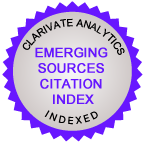The contributions of the popular Latin American to the pop mainstream of communication [Bilingual edition: Spanish – English]
-
Omar Rincón
 orincon@uniandes.edu.co
orincon@uniandes.edu.co
-
Amparo Marroquín
 filo.aletheia@gmail.com
filo.aletheia@gmail.com
Downloads
Abstract
In European and North American studies of communication when they refer to communication or popular culture they do it to refer to "the cultural industry" or the media of mainstream entertainment or culture (cinema, TV, music, best sellers). In Latin America, authors such as Pablo Freire, Jesús Martín Barbero, Néstor García Canclini, Bolívar Echeverría and Carlos Monsiváis refer to the popular as what there is of the people, identity and ways of ordinary people. In this essay, we will approach the ways in which the popular is a different way of thinking about communication beyond pop and folklore to constitute a way of understanding, an aesthetic and a bastard and dirty narrative that makes the presence of the other is in another logic of enunciation, politics and culture.
Palabras Clave
Similar Articles
- José Luis Torres-Martín, Andrea Castro-Martínez, Pablo Díaz-Morilla, Cristina Pérez Ordóñez, Women executives and creators in the audiovisual sector. Analysis of Spanish fiction series in the catalogs of Amazon Prime Video, Movistar+, and Netflix (2019-2021) , Perspectivas de la Comunicación: Vol. 15 No. 2 (2022): July - December
- Alfredo Arceo Vacas, Rafael Barberá González, Sergio Álvarez Sánchez, The context of perception generated on Twitter for the Spanish electoral debates of December 2015 and June 2016: treatment of the credibility factors by the candidates , Perspectivas de la Comunicación: Vol. 13 No. 2 (2020): July-December
- Alejandro Grimson, Marta Rizo García, The affective-emotional dimension in communication theories: gaps and possibilities , Perspectivas de la Comunicación: Vol. 18 (2025): (Publishing on a rolling basis)
- Elena Francés Tecles, Ramón Camaño Puig, Internal communication in primary health centers: A nursing perspective , Perspectivas de la Comunicación: Vol. 16 No. 2 (2023): July - December
- Carlos Rusconi, Eugenia Roldán, Local media and political practices: notes for addressing mediatization. , Perspectivas de la Comunicación: Vol. 14 No. 1 (2021): January - June
- Carlos Muñiz, Mexican contribution to the study of political communication. Bibliometric analysis of papers in open access journals , Perspectivas de la Comunicación: Vol. 17 (2024): January - December
- Danielle Tavares Teixeira, Guidelines for a scientific communication policy for the University of the State of Mato Grosso (Brazil) , Perspectivas de la Comunicación: Vol. 12 No. 1 (2019): January - June
- Daniela Bruno, Verónica Becerro, Flavia Demonte, Communication in/of social research: a review of recent Ibero-American scientific literature , Perspectivas de la Comunicación: Vol. 17 (2024): January - December
- María Eugenia Boito, City/communication/culture towards a transdisciplinary perspective , Perspectivas de la Comunicación: Vol. 13 No. 2 (2020): July-December
- Giacomo Buoncompagni, Between cultural mosaics and institutional practices. Between cultural mosaics and institutional practices. Attempting to build a model of intercultural public communication. , Perspectivas de la Comunicación: Vol. 17 (2024): January - December
1 2 3 4 5 6 7 8 9 10 11 12 > >>
You may also start an advanced similarity search for this article.
Downloads
Published
How to Cite
Issue
Section
License
- Proposed policy to offer Open Access Journals
Authors who publish with this journal agree to the following terms:
a) Authors retain copyright and grant the journal right of first publication with the work simultaneously licensed under a Creative Commons Attribution Attribution (CC -BY 4.0) ![]() that allows others to share the work with an acknowledgement of the work's authorship and initial publication in this journal.
that allows others to share the work with an acknowledgement of the work's authorship and initial publication in this journal.
b) Authors are able to adopt licensing agreements for the non-exclusive distribution of the journal's published version of the work (for example, to post it to an institutional repositories or publish it in a monograph), with an acknowledgement of its initial publication in this journal.
c) Authors are allowed and encouraged to post their work online (For example, in institutional repositories or on their website) prior to and during the submission process, as it can lead to productive exchanges and increase the citation of published work (See The Effect of Open Access).











